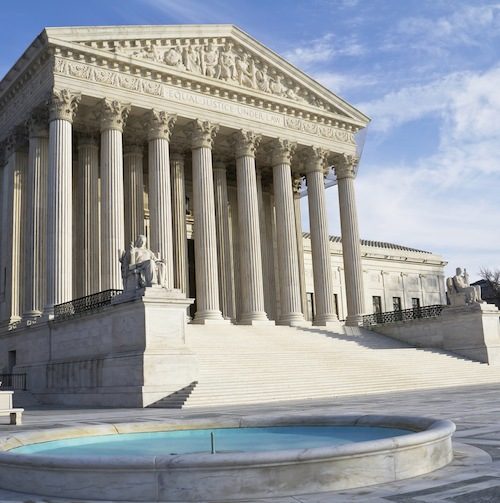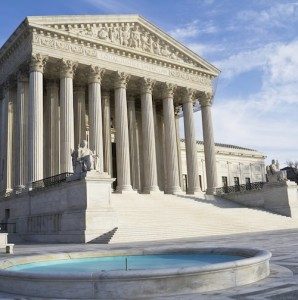
Benefit Planning for Married Same-Sex Couples
Same-sex married couples have an interest in retirement planning as it relates to circumstances where marital status is relevant to the payment of benefits.
Jul 22, 2014
 The number of states recognizing same-sex marriage has now risen to nineteen (and the District of Columbia) with nearly 44 percent of the nation’s population living where marriage equality is law. Naturally, same-sex married couples have an interest in retirement planning as it relates to circumstances where marital status is relevant to the payment of benefits.
The number of states recognizing same-sex marriage has now risen to nineteen (and the District of Columbia) with nearly 44 percent of the nation’s population living where marriage equality is law. Naturally, same-sex married couples have an interest in retirement planning as it relates to circumstances where marital status is relevant to the payment of benefits.
The decision of the Supreme Court in United States v. Windsor invalidated Section 3 of the 1996 Defense of Marriage Act (DOMA) which barred married same-sex couples from being recognized under federal law. The IRS has since issued Revenue Ruling 2013-17 which requires that same-sex couples who are legally married in any jurisdiction that recognizes such marriage (the location of the celebration), whether a U.S. state, territory or foreign country, be treated as married for all federal tax purposes regardless of whether the state in which the couple resides recognizes such marriage. Furthermore, it is important to note that Windsor only covers same-sex marriage and does not apply to civil unions or domestic partners, whether of the same or opposite sex.
Revenue Ruling 2013-17 requires that same-sex couples who are legally married in any jurisdiction that recognizes such marriage (the location of the celebration), whether a U.S. state, territory or foreign country, be treated as married for all federal tax purposes regardless of whether the state in which the couple resides recognizes such marriage.
In April, IRS Notice 2014-19 provided additional guidance on how qualified retirement plans should treat same-sex marriages along with clarification for required retirement-plan amendments to comply with Windsor, Revenue Ruling 2013-17 and Notice 2014-19. For example, amendments are required for plans which define the term “spouse” in reference to Section 3 of DOMA or only as a person of the opposite sex. Many plan documents including Summary Plan Descriptions, policies, procedures and forms must be reviewed for post-DOMA compliance. Required amendments must be adopted by the later of December 31, 2014 or the applicable date under Revenue Procedure 2007-44.
Effects of the Windsor Ruling
The effects of the Windsor ruling will impact many key retirement-plan provisions that relate to spousal benefits. The rules pertaining to retirement benefits and plans will now be identical to those of married couples of the opposite sex.
As an example, death benefits will be automatically paid to same-sex spouses upon the participant’s death and can only be paid to another beneficiary if the surviving spouse has given written consent. A beneficiary designation naming anyone other than the spouse will become invalid without a waiver from the surviving spouse. Additionally, same-sex spouses are eligible to rollover death benefits from the deceased spouse’s retirement plan to his or her own retirement plan or IRA.
Without a doubt, the broad implications of the same-sex marriage ruling and subsequent changes in law will have a prevailing influence on the retirement and benefit planning industry. Please consult a retirement plan specialist to ensure that any and all required changes to your retirement benefits are properly implemented.
For more details on these and other IRS rulings, visit IRS.gov.
